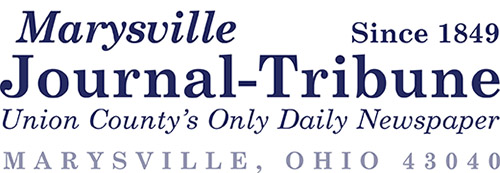Good To Hear! – By Mac Cordell
When seeking answers creates more questions
Marysville Fire Chief Jay Riley mentioned and interview with the Journal-Tribune during Tuesday’s 9/11 memorial service. He recounted my interview with him and said he was shocked by one of my questions. I asked him “Why should John Q. Marysville Reside...
When seeking answers creates more questions
Marysville Fire Chief Jay Riley mentioned and interview with the Journal-Tribune during Tuesday’s 9/11 memorial service. He recounted my interview with him and said he was shocked by one of my questions. I asked him “Why should John Q. Marysville Resident take time to attend the 9/11 ceremony and remember.” He said he was shocked that I, or anyone, didn’t know.
Just to be clear, while I did ask the question, I already understand the importance of remembering.
Now let me explain the question Riley referenced.
Those of you I’ve interviewed in the past likely recognize it. I use that question, or a variation of it, in nearly every interview I conduct.
Often during an interview, a subject can trail off or not finish a thought. Sometimes they begin to answer a question then jump to another question or circle back to something from earlier in the interview.
I find that by asking why an average person should care, it helps interview subjects draw a focus on what they really want to say. It helps the person being interviewed give a concise summary in a sentence or two.
Often the answer to this question serves as the lead quote for my article because it captures well the subject’s thoughts.
It did in the 9/11 Memorial Service preview article.
“It is just really important for us to remember those who sacrificed,” Riley answered. “It is a good time to remember and for those who weren’t even alive at the time, they need to be able to appreciate how we got where we are today.”
I will sometimes ask the question: “If I get only one thing right in this article, what would you want that to be?” In asking that question, it is not that I am planning to get details in the article wrong or that I haven’t been paying attention. It helps me determine what the subject believes to be the most important thing they want my reader to know. Because the interview and the article belong to them, I want to make sure the reader gets that point.
I know that that the topic of each article is newsworthy, otherwise I wouldn’t be writing an article. But no one cares what I know or what I think. No one voted for me and your tax dollars don’t pay my salary. I am not the star or center of information in my articles.
One of the things I love most about my job is that I learn new things everyday, literally every day.
The reason we do interviews is because the readers want to learn, to become informed, and to know what the interviewee has to say about the topic. That person is the most important person participating in the interview, not me. They are the experts, the central figure in the article I am writing.
I can help connect their thoughts to each other. I can help put their words into some context. I can offer the thoughts and words of another person, whether that person is supportive, contrary or just has a different perspective.
What I cannot do is allow my thoughts or words to be the article’s focal point. I have an opinion about every article I write, but I also work to keep it out of that article. If I find myself struggling to do that, I warn my proofreader and editor to be on the lookout for any area where my bias or opinion shows.
I conclude nearly all interviews by asking if there is anything we haven’t covered that that the interview subject thinks is important. I ask this question because, again, the interview subject is more knowledgeable about the topic than I am. It would be arrogant of me to assume that I know exactly what the subject wants to say.
I hope that by me sharing a little bit about my process, you are as informed as I am when you do it.
-Mac Cordell is a reporter for the Journal-Tribune.










